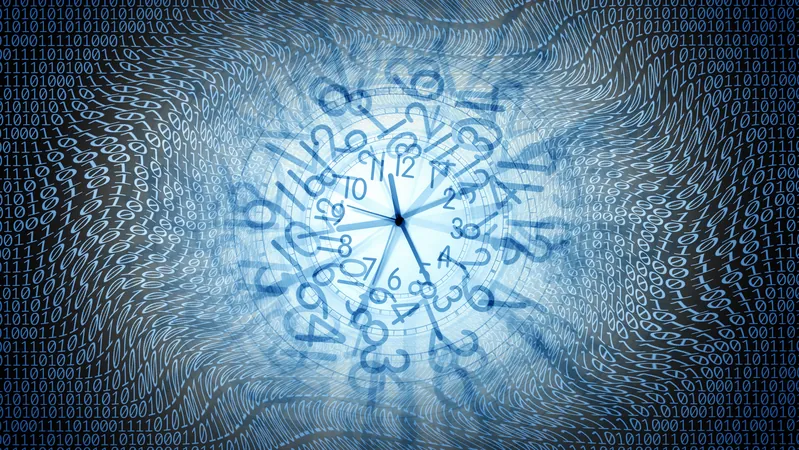
AI Can't Tell Time: Shocking Study Exposes Major Flaw in Machine Intelligence
2025-05-17
Author: William
AI Faces Unexpected Challenges with Timekeeping
A groundbreaking study has uncovered a surprising limitation of artificial intelligence (AI): the inability to read an analogue clock or ascertain the day of the week for a given date. While AI dazzles with its ability to write code and generate lifelike imagery, it falters in these seemingly simple tasks that humans master at an early age.
Research Findings Presented at Global Conference
This revelation was shared at the upcoming 2025 International Conference on Learning Representations (ICLR) and was published on the preprint server arXiv on March 18. Researchers, led by Rohit Saxena from the University of Edinburgh, emphasized that these deficiencies need urgent attention for AI's effectiveness in time-sensitive roles like scheduling and automation.
AI Models Tested: A Flop at Time and Date Recognition
In their experiment, the researchers introduced a specialized dataset comprised of images of clocks and calendars to various multimodal large language models (MLLMs), including Meta's Llama 3.2-Vision and OpenAI's GPT-4o. The results were startling: AI struggled to recognize the correct time or day over half the time.
The Reason Behind AI's Struggle
Saxena pointed out that traditional AI training methods, based on labelled examples, aren't sufficient for tasks that require spatial reasoning. Unlike humans, AI finds it challenging to analyze overlapping clock hands or navigate unique designs like Roman numerals.
Arithmetic: A Fundamental Flaw?
When tasked with calculating what day the 153rd day of the year falls on, AI systems only accurately identified dates 26.3% of the time. Although arithmetic is typically a straightforward function of computing, Saxena noted that AI doesn't execute math algorithms in the traditional sense; it predicts answers based on patterns it has learned.
A Call for Better Training Data
The study shines a light on how AI's limitations stem from inadequate training data, particularly for rare scenarios such as leap years or unique calendar calculations. While LLMs can identify leap years conceptually, they struggle to apply that knowledge to practical, visual tasks.
A Crucial Reminder: AI Is Not Infallible
This research underscores the importance of rigorous testing and human oversight in AI applications, especially when dealing with tasks that require precise reasoning combined with perception. As Saxena concluded, "AI is powerful, but we must remain cautious about over-relying on its capabilities." This striking study beckons a deeper investigation into how AI learns and how we can better prepare it for real-world application.









 Brasil (PT)
Brasil (PT)
 Canada (EN)
Canada (EN)
 Chile (ES)
Chile (ES)
 Česko (CS)
Česko (CS)
 대한민국 (KO)
대한민국 (KO)
 España (ES)
España (ES)
 France (FR)
France (FR)
 Hong Kong (EN)
Hong Kong (EN)
 Italia (IT)
Italia (IT)
 日本 (JA)
日本 (JA)
 Magyarország (HU)
Magyarország (HU)
 Norge (NO)
Norge (NO)
 Polska (PL)
Polska (PL)
 Schweiz (DE)
Schweiz (DE)
 Singapore (EN)
Singapore (EN)
 Sverige (SV)
Sverige (SV)
 Suomi (FI)
Suomi (FI)
 Türkiye (TR)
Türkiye (TR)
 الإمارات العربية المتحدة (AR)
الإمارات العربية المتحدة (AR)